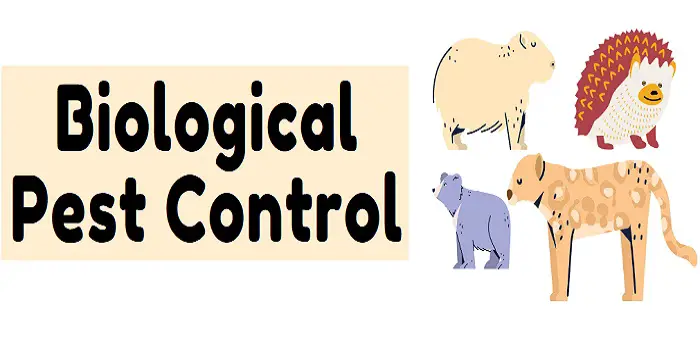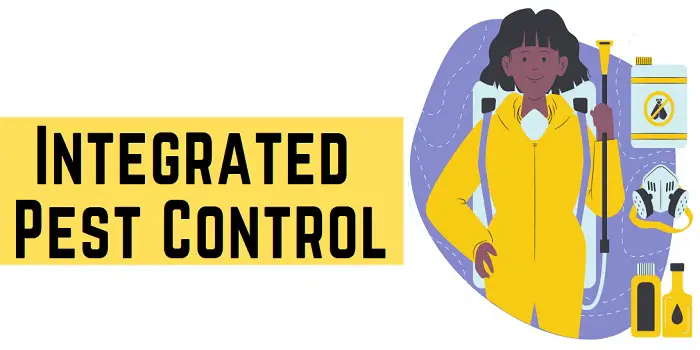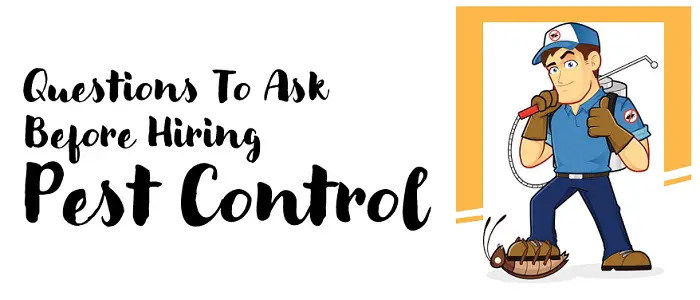
When it comes to controlling the pests in your garden or in a field, there are two options you can opt for.
The first is a chemical treatment involving pesticides, and the other is a biological treatment.
When we use pesticides in order to kill insects, we also target those insects which do not hurt us; if anything, they are beneficial for the environment.
In case we do not want to kill those beneficial insects but only the harmful pests, biological pest control works the best.
What is Biological Pest Control?
Biological pest control can be defined as a process where we control pests and their population by using their enemies against them.
These natural enemies are known as pest control agents, and they include predators, parasites, and organisms.
The biological pest control method of controlling and getting rid of pests is way better and environmentally friendly as compared to others.
But, this kind of killing of pests requires active control of a human being.
The biological method is majorly used as it is environmentally friendly and safe.
Plus, no remains of the pest control agents are left in the air.
The biological process of controlling pests might seem easy, but it is not, especially if this is the first time you are doing it.
Biological pest control has three strategies, and each strategy is different from the others, having different steps and agents. These strategies include:
- Conservation Biocontrol
- Augmentative Biocontrol
- Classical Biocontrol
I am sure we have all heard of gardeners having ladybugs in their gardens. That is because they opted for the biological method of controlling pests.
Ladybug acts like one of the biological control agents, which is safe both for the environment and for the soil as well as water.
Moreover, even mint is used by many gardeners as it also plays the role of a pest control agent. By planting mint in the garden, spiders stay at bay and do not enter the garden.
Pros and Cons of Biological Pest Control
Further in this article, we will discuss the pros and cons of biological pest control:
The Pros
Following are the few advantages of implementing a biological pest control process:
1- Specifically Targets the Pests
When it comes to the biological method of controlling the pests, the predator used to control the pests will only and specifically control and target the population of the pests.
This makes it a better option than the chemical pest-controlling process.
The chemical process, full of pesticides, can easily destroy the plants that bear fruits by rotting them.
Biological pest control is a method that is safe as it targets only weeds and leaves fruits and others alone.
This selectivity is one of the most significant advantages of the biological pest-controlling method, as it does not damage other species.
2- Cost-Effective
When it comes to the cost of this process, it can be cheaper but can also be more costly than the chemical procedure.
The introduction of the process can be expensive as the steps involved in it can be costly.
But in places where the pests are at a low level and are not very strong, this method is pretty cost-effective and convenient for them.
When it comes to fungi, it is very cost-effective. In this process, fungi kill the insects as it grows inside them.
It takes almost a week for the fungi to completely kill the insect.
3- Friendly for The Environment
The chemical method of controlling pests can be very bad for the environment.
It is responsible for contaminating the atmosphere, water, and soil.
Unlike the chemical process, the biological control pest does not leave behind any kind of residue as its after-effects.
That is why it does not adversely affect the environment in any way.
The Cons
Now, let us discuss some drawbacks of biological pest controlling:
1- Time Consuming
One major disadvantage of biological pest control can be that it takes a lot of time to control the population of the pests. It can take up to years to start working. Plus, it requires a lot of dedication as well as patience.
For a gardener who needs to control the pest population immediately or in a short period, this option can be a no-no for him or her.
2- It can Be A Hard Task for A Non-Professional
The biological method of controlling the pest population might sound easy, but it is not.
Especially if you are non-professional, it might be harder for you because the strategies involved in this process can be very complicated, and the steps in all three different strategies.
To accomplish this process, one needs a good knowledge of environmental conditions as well as of biological control agents.
3- Does Not Work Everywhere
While the chemical process of getting rid of pests has proven to be successful, the success stories of controlling the pest population through a biological process are very few.
Moreover, this process is more common to be restricted to the pests in the glass house and to areas that are small and are on the islands.
4- Can Grow New Pests
There have also been cases where the biological control agent, when introduced and is non-native, ultimately turns into a pest itself.
An example of this is, in the US, a lady beetle was introduced to control the aphids.
However, it became a pest itself.
| Benefits | Drawbacks |
|---|---|
| Self-reliant | Slow process |
| Targets specific pest | Don’t destroy all the pests |
| Inexpensive after starting | Expensive in the beginning |
| Will work most of the time |
The Conclusion
Ultimately, biological pest control has its own set of advantages and disadvantages, as it is still a new method of controlling the population of pests.
Care that if you plan to use this method for pest control, hiring a professional is important.
A professional who knows about it and has knowledge regarding it should implement the process much more efficiently, as it can be difficult for non-professionals.

Welcome to ProShieldPest.com. I am Tina Jones. I have been working as a pest removal professional in Winslow, Arizona lately. At present, I love to spend my time with my family as a retiree.
Here I share all my knowledge and experiences to help people understand better how they can stop pests at their homes without actually killing them. Hopefully, the information you will find here will help in safeguarding your home! You can check more about me here.




